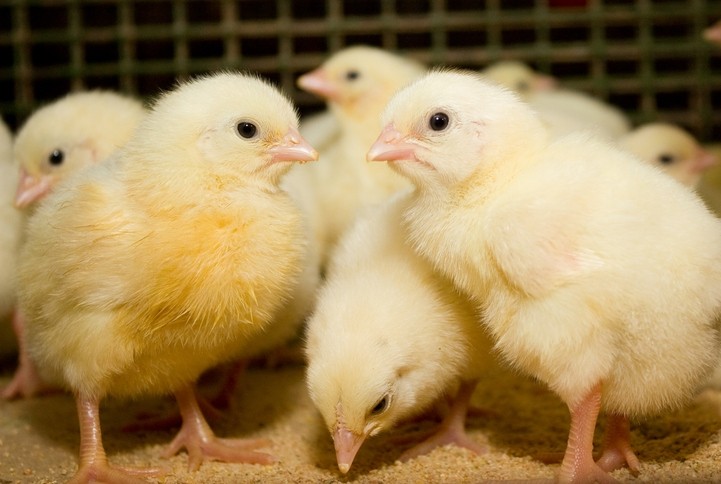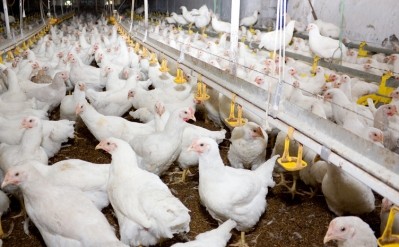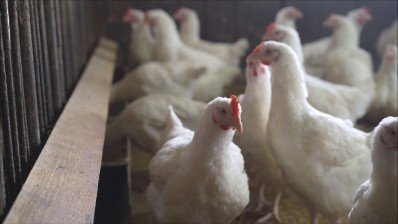Study: Dietary nucleotides support bird growth during C perfringens infection

C. perfringens is a bacterium that causes poultry diseases with a high rate of prevalence and severity, such as necrotic enteritis, and has led to significant losses in the global poultry sector.
Antibiotic growth promoters were typically used to tackle infections in birds caused by C. perfringens; however, nutritionists are trying to find alternatives to AGPs due to antibiotic resistance concerns. One such alternative is the use of bioactive substances like nucleotides (Sauer, Bauer & Mosenthin, 2009).
A group of experts in animal nutrition and microbiology at the Veterinary Faculty at Cairo University in Egypt, writing in the journal, Veterinary and Animal Science, reported that the dietary supplementation of nucleotides in broiler diets, at 0.1%, noticeably attenuated the negative effects of a C. perfringens challenge by improving the intestinal histomorphology and intestinal barrier function in the birds.
Background
Nucleotides are the building block of protein and nucleic acids of low relative molecular mass and regarded as ‘semi-essential nutrients’ (Carver, 2007; Yu, 1998), noted the Egypt based team.
The researchers outlined how nucleotides are needed for the multiplication of all living cells (Cosgrove, 1998) and physiological activities of animals (Superchi et al., 2012). They are also crucial for the body as a cellular energy source (ATP) (Carver & Walker, 1995).
Nucleotides, they explained, act as a fundamental component in carbohydrate, protein, fat and nucleic acid metabolism (Carver & Walker, 1995; Cosgrove, 1998). Therefore, they play a critical role in protein synthesis (Yamauchi et al., 1998), cell mitosis (Carver & Walker, 1995), lipid metabolism (Gil, Corral, Martinez & Molina, 1986), hematopoiesis (Yamamoto, Wang, Adjei & Ameho, 1997), immunity (Hung, 2015) and gut health (Martinez-Puig et al., 2007; Sauer et al., 2012a), noted the researchers.
The team highlighted how, in the past, nucleotides were not believed to be an essential nutrient in animals and humans’ diets.
“It was thought that animals were able to produce sufficient nucleotides that meet their physiological needs via a de-novo synthesis or a salvage pathway (Hoffmann, 2007).
“However, LeLeiko, Bronstein, Baliga and Munro (1983) stated that de-novo synthesis could not provide enough nucleotides under certain circumstances, as in the case of rapid enterocyte turnover induced by rapid growth, reproduction and environmental stressors. Therefore, nucleotides are often added to animals’ diets in the form of pure substance or yeast extracts (Alizadeh et al., 2016; Sauer et al., 2012a).”
Methodology
The researchers looked to evaluate the efficiency of dietary nucleotides-supplementation on broiler chickens to alleviate the intestinal C. perfringens levels and its adverse effect on gut and growth performance parameters.
Their study involved 270 chickens that were randomly split into six treatment groups over 35 days.
Nucleoforce Poultry, a product from Spanish producer, Bioibérica, was used in the experiment. The researchers said the product is a balanced concentrate of free nucleotides and active precursors obtained from dried yeasts (saccharomyces cerevisiae).
Treatment 1 (CX), a negative control group was fed corn-soybean basal diet without added nucleotides. Treatment 2 (CN 0.05) and treatment 3 (CN 0.1), consisted of chicks were fed the basal diet with the addition of nucleotides on top at two levels (0.05 and 0.1%) respectively. Treatment 4 (PX), treatment 5 (PN 0.05), and treatment 6 (PN 0.1) consisted of chicks that were challenged with C. perfringens inoculum (~4 × 108 CFU/ml) on day 14, 15, 16 and 17 of the experiment and were fed diets similar to treatments 1, 2, and 3 respectively.
The authors said that, at the end of the experiment, the intestinal C. perfringens counts, microscopic lesion scores, intestinal histomorphology, intestinal barriers - occludin and mucin mRNA expression - along with growth parameters were determined.
Findings
The researchers observed that the pathogen challenge significantly increased both C. perfringens levels and intestinal lesion scores, which have an adverse effect on intestinal barriers and intestinal histomorphology resulting in a significant decrease in body weight gain (BWG) and an increase in feed conversion ratio (FCR).
They saw that nucleotides-supplementation, at 0.1%, significantly decreased both C. perfringens levels and intestinal lesion scores, and improved intestinal barriers and intestinal histomorphology, which consequently resulted in improved growth performance parameters to the point where they were nearly the same as that of the control, the un-supplemented group.
“Our results are compatible with M'Sadeq, Wu, Choct, Forder and Swick (2015) who found that dietary supplementation of the yeast cell wall was effective in restraining the decline of bird performance; which is induced by C. perfringens and Eimeria challenge.”
On the contrary, Alizadeh et al. (2016) showed that dietary supplementation of yeast-derived products did not affect the growth performance of broiler chickens challenged with C. perfringens, acknowledged the authors.
Source: Veterinary and Animal Science
DOI: https://doi.org/10.1016/j.vas.2020.100130
Title: The impact of exogenous dietary nucleotides in ameliorating Clostridium perfringens infection and improving intestinal barriers gene expression in broiler chicken
Authors: FF Mohamed, MM Hady, NF Kamel, NM Ragaa















